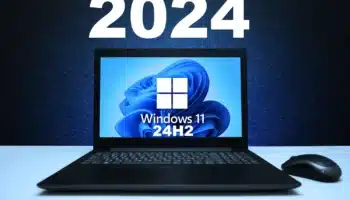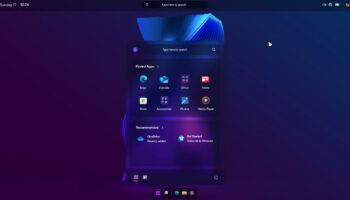Want Google Glass? Become a 'Glasshole' on April 15th

Google Glass has yet to be officially released to the public, yet the product has already made a big impact on society. If you aren't familiar, it is a computer that you wear on your head, like glasses, with an integrated camera. The camera is what has ingrained the product into popular culture by way of controversy. It should come as no surprise that people become uncomfortable when a camera is pointed at them. News reports started hitting the airwaves that wearers of the product were being assaulted, banned from businesses and issued traffic tickets.
However, the controversy and hatred towards the product has been minimized thanks to its relatively small footprint. You see, Google limited sales to what the company officially dubbed "Explorers" -- basically technology nerds that the company knew would like the product. Unofficially, people that dislike the product have started calling owners "Glassholes". Today, the company announces that starting on April 15th, all adults in the USA are welcomed to buy it -- but availability will be limited.
Twitter introduces web notifications

Using social media services such as Twitter, Google+ and Facebook can be a dizzying affair. The more people that you follow or become friends with, the more "noisy" the experience. Quite frankly, it can become an impossibility to keep track of all the friend-requests and notifications.
Twitter can be particularly difficult for me, as I must keep the list of who I follow rather small, or else I cannot keep up. Luckily, the blue bird-logo company is aiming to make things more manageable for us web users with web notifications.
Amazon buys comiXology
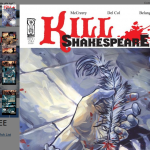
Jeff Bezos expands his digital-publishing empire, by acquiring one of the electronic comic-book pioneers. I get more PR emails from comiXology than most any other company. Not as much as Google or Microsoft, but close. That is until recently. Now I understand why, assuming silence is golden before the big merger announcement.
Amazon expects to close the acquisition during second quarter, giving the company a big footprint in the digital comic-book market. Founded in 2007, comiXology helped bring Marvel and DC Comics to digital. Rough -- and very inexact industry estimates -- put paid digital comic downloads at 40 million per year.
EASEUS Partition Master 10 adds OS migration, WinPE 3.0 boot disk
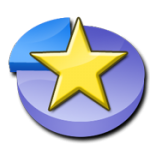
EASEUS has released Partition Master 10 Free and Partition Master 10 Professional, the latest editions of its excellent disk management tool.
The new build now includes a wizard to migrate your system disk to a new drive (SDD and HDD), and make it bootable.
HTC One M8 arrives in more stores
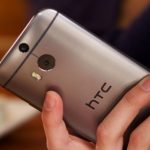
Well, hell, someone pinch me and tell me this is April 11th; my calendar says the 10th. Because HTC sent BetaNews email (and tweeted) that the One M8 is available now. I called several AT&T stores, which confirmed sales starting today; Sprint also. T-Mobile launches tomorrow, however. So that tweet isn't quite what it seems: "See it, touch it, believe it. The new HTC One (M8) has landed at retailers nationwide".
Verizon got an early lead, on March 25th. According to HTC, The One "is hitting store shelves at the other U.S. operators today. Customers of all major U.S. operators will now be able to walk into stores and pick-up the HTC One (M8) starting at just $199". That's true for some carriers, but not all. If you're on T-Mobile and willing to wait, The One will be zero dollars down and monthly payments spread over 24 months.
OpenMarket introduces new messaging solutions for enterprise IT

Business IT is increasingly expected to operate on a 24/7 basis which means that system admins need fast access to information should anything go wrong, whether it’s a security incident or a system failure.
Enterprise mobile specialist OpenMarket has launched a suite of solutions aimed at helping to ensure continuity, security and improve support management.
Windows XP upgrades give global PC shipments a (small) boost

IDC and Gartner have released their worldwide PC shipment estimates for the first quarter of 2014 (1Q14), and as expected they once again show a year on year decline, but the severity of the drop has eased compared with the past seven quarters -- thanks, in part, to XP users upgrading their aging systems.
"The end of XP support by Microsoft on April 8 has played a role in the easing decline of PC shipments," says Mikako Kitagawa, principal analyst at Gartner. "All regions indicated a positive effect since the end of XP support stimulated the PC refresh of XP systems. Professional desktops, in particular, showed strength in the quarter. Among key countries, Japan was greatly affected by the end of XP support, registering a 35 percent year-over-year increase in PC shipments. The growth was also boosted by sales tax change. We expect the impact of XP migration worldwide to continue throughout 2014".
Dropbox befriends businesses, announces Carousel

Cloud storage service Dropbox has officially announced the public availability of Dropbox for Business, a new product designed to boost the company's penetration in the enterprise cloud storage market. There, it will go against existing offerings from competing services like Box.
Dropbox for Business is designed to appeal to both enterprises and their employees, so it will give enrolled users the option to switch between work and personal content. Administrators will be able to have better control over company data, according to Dropbox, with the help of features like remote wipe, account transfer and audit log sharing, which allow them to keep track of data stored in Dropbox's cloud.
Dropbox launches Mailbox for Android with 'Auto-swipe'
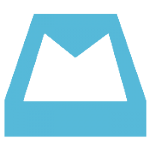
Dropbox has launched an Android version of Mailbox, its popular iOS email client.
The headline addition is a new "Auto-swipe" feature which learns from your actions, such as which emails you want to "snooze" (hide until later) and which you want to archive, then automatically handles similar messages in the future.
Heartbleed -- should we panic now?

Yesterday the IT world went a little bit crazy over the disclosure of the Heartbleed bug and the chance that encrypted information could potentially be intercepted by hackers.
We know that some big sites, notably Yahoo, have been exposed and Google was quick to apply the necessary patches to its servers. If you’re still worried, a number of sites have sprung up allowing you to check if a site has been patched -- thanks to Bob Grant on the comments thread to yesterday’s story for highlighting that one.
Microsoft: Azure? Windows? Heartbleed? No way, maybe if you're using Linux

You will have heard by now that a major vulnerability in the OpenSSL library was just made public. Called Heartbleed, it affects the security of a huge number of cloud services and sites as well as various products, like operating systems and apps, which have employed it during the past two years. The impact can be devastating, as there is no way of telling if Heartbleed was exploited, or how much data may have been stolen so far.
A number of companies have already announced the patching of their OpenSSL-toting services and products. Google was among the first to do so, yesterday. Evernote, however, just revealed that its users are not affected. Microsoft has also decided to shed light on whether Heartbleed impacts its users, saying that Windows Azure, Microsoft account, and Windows are immune.
Why Microsoft's Perceptive Pixel is the coolest touch TV you can't buy (yet)
It's tough for me to get too excited about TVs these days. I'm past the glitz of the 3D craze. And "large" 60 and 70 plus inch screens are neat, but after enjoying a 114" viewing area thanks to my home projector the last few years, anything smaller pales in comparison.
Yet when I got to try out an 82" Perceptive Pixel touch TV at Microsoft's Chicago offices earlier today, I couldn't resist wanting one for my own condo or even office. It's that unique of a TV screen, and if when it goes mainstream, it will completely change the way we view interactive entertainment displays.
Automatically discover and diagram your network with Netpict
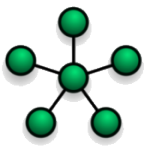
Netpict is a simple free program for creating basic network diagrams using popular Cisco icons.
If you’ve ever used any other diagram tool, Netpict will seem very familiar. A panel on the left has various icons ("Cloud", "Firewall", "Server", "Router", "PC", "Laptop", more); you drag and drop the ones you need onto the page, right-click and drag to create connections between two elements, before finally exporting the map as an image.
How to check if your Android phone is vulnerable to Heartbleed
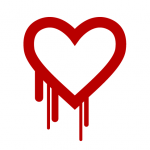
Heartbleed is a critical bug in OpenSSL that allows for the stealing of information that would normally be protected by SSL/TLS encryption. Essentially anyone on the internet can read the memory of systems protected by vulnerable versions of the popular cryptographic software library. The bug affects two-thirds of the Internet and while Google has patched its services, Android remains affected.
If you have an Android phone you can quickly check to see what version of OpenSSL it’s running, and whether the vulnerable feature, called Heartbeats, is enabled.
Some thoughts on the passing of Windows XP
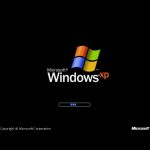
It may be hard to believe but there was a time when people looked forward to new versions of operating systems. Before Windows XP many PC operating systems were not very good. The developers of applications had to code around problems. Companies wanted their business applications to be more reliable. Over the years operating systems improved.
Before Windows XP Microsoft had two PC operating systems. One was the descendant of Windows 95 the other of Window NT. In the years that preceded Windows XP Microsoft incrementally improved the user interface on the Windows 95 side and the reliability and performance on the NT side. Windows XP was the convergence of the best of both. Before XP Microsoft released a new version of its operating system almost every year. It would be almost 6 years until a successor to XP -- Windows Vista -- hit the market (with a thud). Six years was an impressive accomplishment, but still XP lived on. Windows Vista was not the market success Microsoft expected. Vista introduced too many changes. The market chose to stay with XP. It would be another two years before a true successor to XP emerged in Windows 7.
Most Commented Stories
Windows 12.1 is everything Windows 11 should be -- and the Microsoft operating system we need!
Apple Intelligence will launch in beta and that’s unacceptable for a trillion-dollar company
© 1998-2024 BetaNews, Inc. All Rights Reserved. Privacy Policy - Cookie Policy.
